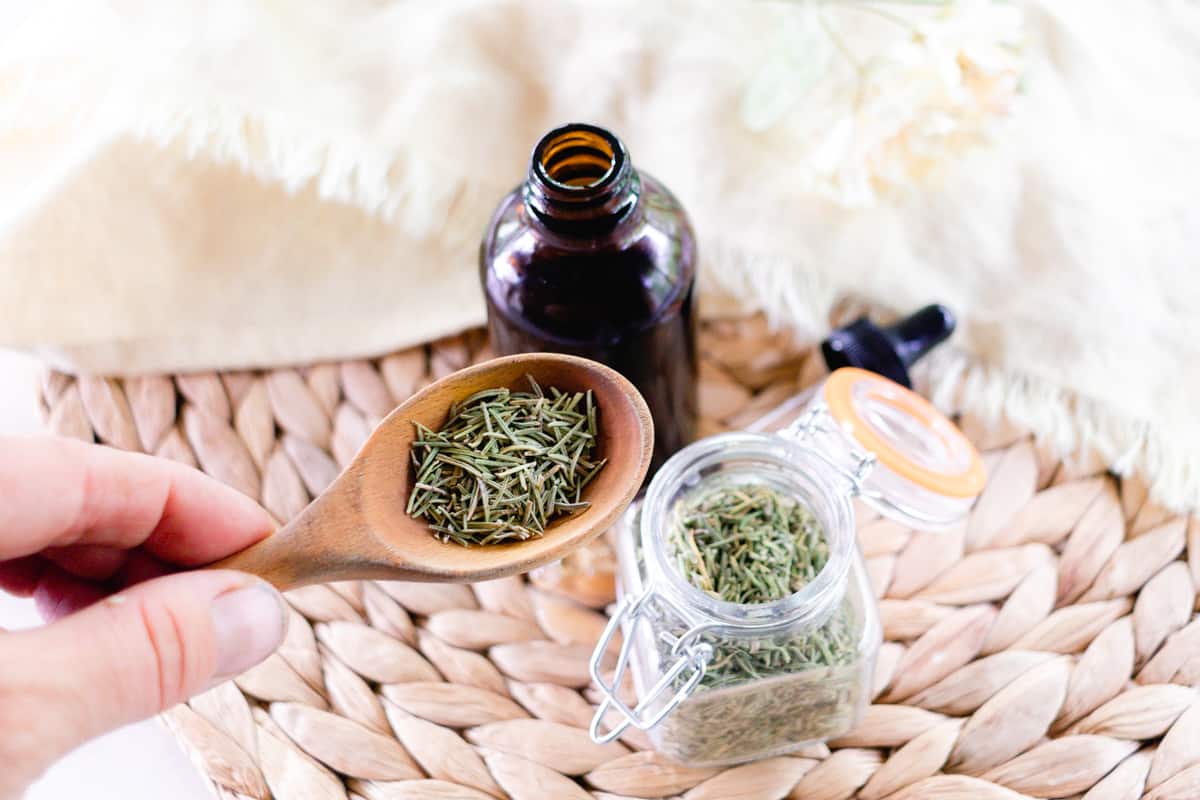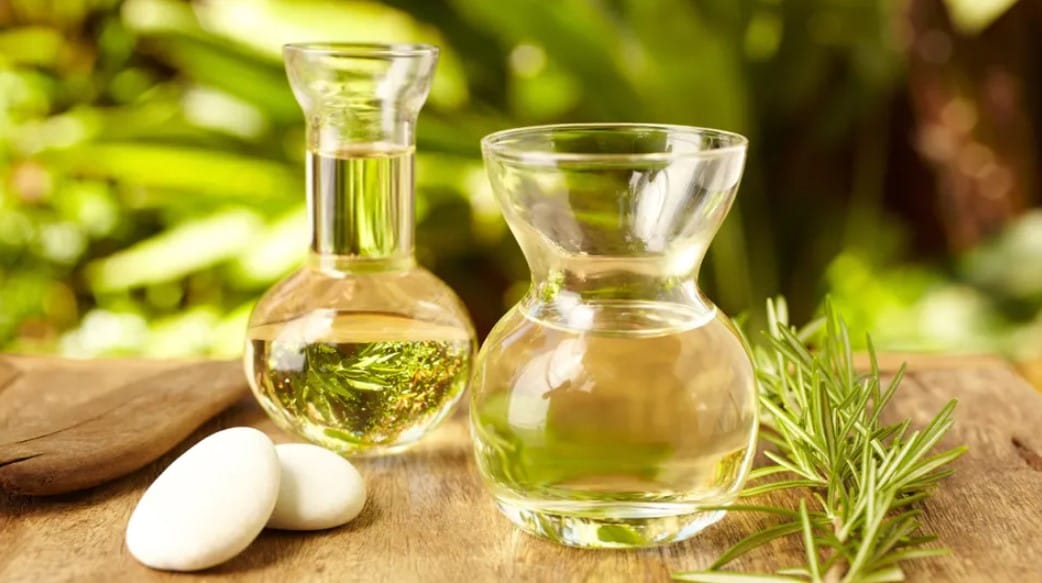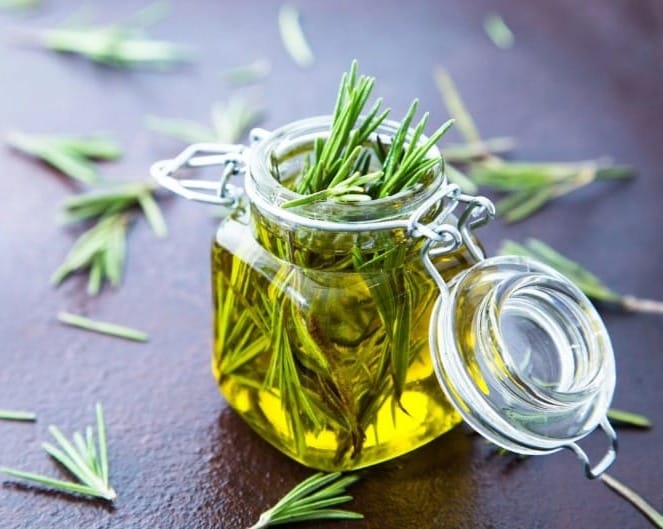Key Takeaways:
- Learn the process of making homemade rosemary oil using fresh or dried rosemary.
- Understand the importance of choosing the right carrier oil for your rosemary infusion.
- Discover the benefits of rosemary oil for hair and general wellness.
Rosemary oil is a versatile and aromatic essential oil that has been used for centuries for its health and beauty benefits. Whether you're looking to promote hair growth, enhance your culinary creations, or simply enjoy the rich rosemary flavors in a homemade product, learning how to make rosemary oil is a valuable skill. This comprehensive guide will walk you through the process, from selecting your ingredients to storing your finished oil.
Selecting Your Rosemary

When making rosemary oil, the quality of your rosemary is paramount. If you have your rosemary bush, you can pick fresh sprigs for the most potent oil. Alternatively, prepackaged dried rosemary can be used, but ensure it's of high quality for the best results. Fresh herbs should be completely dry before use to prevent moisture from causing spoilage.
Choosing Your Carrier Oil
The carrier oil you select will affect the texture, scent, and shelf life of your homemade rosemary oil. Popular options include coconut oil, jojoba oil, and sweet almond oil, each bringing its benefits to the infusion. Coconut oil has a very long shelf life and is solid at room temperature, while jojoba oil is known for its similarity to the skin's natural oils.
Preparing the Rosemary
Before you begin infusing your oil, the rosemary needs to be prepared. For fresh rosemary, ensure the springs are completely dry to avoid water contamination. If you're using dried rosemary, crush the leaves slightly to release their natural oils. This step is crucial for achieving the rich rosemary flavors in your oil.
The Infusion Process
The infusion process involves slowly heating your chosen carrier oil with the rosemary to allow the essential oils to blend. You can do this using a double boiler or a slow cooker on low heat. It's important to let the oil mixture heat gently; if the oil begins bubbling, it's too hot and could degrade the quality of the rosemary oil.
Straining the Oil
Once the infusion process is complete, the next step is to strain the oil to remove the rosemary pieces. Using a fine mesh strainer or cheesecloth, pour the oil mixture through to catch the solids. Ensure all rosemary needles are removed to prevent spoilage. The remaining oil should be clear and fragrant.
Rosemary Oil in Aromatherapy
Aromatherapy has long embraced the use of rosemary oil for its invigorating and purifying qualities. When using rosemary oil in aromatherapy, it's essential to ensure the oil is properly infused to harness its full potential. Begin by selecting a few sprigs of fresh rosemary, allowing them to cool completely before starting the infusion process. This ensures that the essential oils within the rosemary sprigs are preserved, leading to a more potent infused oil. The sprigs should be completely submerged in the carrier oil of your choice, such as olive or almond oil, in a mason jar with a tight-fitting lid to maintain the integrity of the oil.
As the oil warms in the infusion process, the aromatic compounds of the rosemary are released, creating an essence that is both refreshing and soothing. To slowly heat the oil without compromising its therapeutic properties, place the mason jar in a large metal bowl filled with water and heat it over medium-high heat. This method allows for a gentle heat transfer, which is crucial for maintaining the delicate balance of the oil's fragrance and effectiveness. Once the oil has reached the desired temperature, let the oil cool before straining, ensuring that the aromatic qualities are at their peak for use in aromatherapy practices.
Rosemary Oil in Traditional Medicine
The use of rosemary oil extends far beyond the kitchen and beauty routines; it has a storied history in traditional medicine. For centuries, healers have tapped into the potent properties of rosemary, using oils infused with the herb to address a myriad of health concerns. When preparing rosemary oil for medicinal purposes, one canning jar's worth of oil can be infused with push-dried rosemary to harness its full potential. The dried herbs are believed to concentrate the plant's natural compounds, making the oil more potent.
In traditional medicine practices, rosemary oil is often used to improve circulation, relieve pain, and enhance memory. To create a medicinal-grade oil, practitioners typically allow the sprigs to cool completely after heating, ensuring that the volatile compounds are not lost. The oil is then carefully strained and stored in a container with a tight-fitting lid, usually kept away from direct sunlight to preserve its therapeutic qualities. This meticulous process ensures that the rosemary oil retains its efficacy for use in various healing applications.
Incorporating Rosemary Oil in Home Remedies

Rosemary oil's versatility is showcased in its application in home remedies. When infusing oil with rosemary for these purposes, it's common to use a carrier oil that complements the therapeutic properties of rosemary. Carrier oils such as coconut or olive oil are heated on medium-high heat before the dried rosemary is added. This method allows the active ingredients to be released into the carrier oil, creating a potent home remedy for issues like scalp irritation or muscle aches.
For those interested in creating their home remedies, it's important to note that two cups of carrier oil to a generous handful of rosemary is a good ratio to start with. After the jar boil method is used to infuse the oil, it's crucial to let the mixture cool and settle before straining. This ensures that every drop of the finished product is imbued with the beneficial properties of rosemary. Whether it's for a soothing massage oil or a natural antiseptic, rosemary oil can be a valuable addition to any home remedy kit.
Crafting Rosemary Oil for Skincare
Rosemary oil is not only a staple in the kitchen and hair care routines but also a cherished ingredient in skincare. When crafting rosemary oil for skin care applications, it's important to use dried rosemary oil to avoid any moisture that could potentially lead to spoilage. Start by spreading three to four sprigs of rosemary on a large baking sheet and let them dry out completely. Once dried, push the dried rosemary into a canning jar's worth of your chosen carrier oil, ensuring that the herbs are fully immersed. This step is crucial for preventing mold growth and for achieving a high-quality infused oil.
To infuse the oil, one can employ the double boiler method by placing the jar in a deep pot filled with water or using a boiling water canner. The key is to maintain a consistent temperature that is hot enough to extract the beneficial properties from the rosemary without burning the oil. After infusing the oil over medium-high heat for about half an inch of time, allow the oil to cool with the sprigs still inside. This prolonged contact, while the oil cools, can enhance the infusion, making the oil more effective for skincare purposes. Once cooled, strain the oil with a fine mesh to remove the leftover rosemary leaves, and store the oil in a dark glass bottle with a tight-fitting lid to preserve its potency.
Storing Your Rosemary Oil
Proper storage is key to maintaining the quality and extending the shelf life of your rosemary oil. Use a clean glass jar with a tight-fitting lid and store the oil in a cool, dark place. If properly stored, your homemade rosemary oil can last for several months or even longer if refrigerated.
Rosemary Oil for Hair
Rosemary oil for hair is a popular use for this homemade product. It's believed to promote hair growth and improve blood flow to the hair follicles. To use, simply massage a few drops into your scalp and hair, or add it to your regular shampoo or conditioner.
Cooking with Rosemary Oil
For those who enjoy culinary pursuits, infused oils can add a delightful flavor to dishes. Use your homemade rosemary oil in marinades, dressings, or as a finishing oil to impart the rich rosemary flavors into your meals. Remember, if you're using the oil for cooking, ensure it's made with an edible oil like strained olive oil.
The Benefits of Inhaled Rosemary Oil

Inhaling rosemary essential oil can have therapeutic effects, such as improving memory and concentration. You can add a few drops to a diffuser or simply inhale the aroma directly from the bottle. The invigorating scent of rosemary can be a natural way to boost your mood and mental clarity.
Safety Precautions
When making rosemary oil, it's important to follow safety precautions to prevent the growth of bacteria. Undried rosemary contains moisture that can grow harmful botulism bacteria if not handled correctly. Always ensure your herbs and equipment are completely dry and clean before starting the infusion process.


How long does homemade rosemary oil last?
When properly stored in a cool, dark place, homemade rosemary oil can last for several months. Refrigeration can extend its shelf life even further. It is important to regularly check for any signs of spoilage, such as a change in color or scent, and discard if necessary.
Can I use dried rosemary instead of fresh?
Yes, you can use dried rosemary in place of fresh. However, keep in mind that the potency and flavor may differ slightly. Adjust the amount used according to your personal preference.
How often should I use my homemade rosemary oil on my hair?
It is recommended to use homemade rosemary oil on your hair once or twice a week for best results. Overuse may cause buildup and weigh down your hair. If you have any scalp conditions or allergies, consult with a healthcare professional before use.
Can I use any type of oil as a carrier oil for making rosemary oil?
While you can use various oils, it's best to choose a carrier oil with a very long shelf life and one that complements the intended use of your rosemary oil. Coconut oil, jojoba oil, and sweet almond oil are popular choices.
Is it necessary to dry fresh rosemary before making oil?
Yes, it's crucial to ensure that fresh rosemary is completely dry before infusing it in oil to prevent the growth of bacteria and mold.

Making your rosemary oil is a rewarding process that allows you to create a natural, multipurpose product. By selecting high-quality ingredients and following the steps outlined in this guide, you can produce a homemade rosemary oil with a myriad of uses. Whether for hair care, cooking, or aromatherapy, your DIY rosemary oil will surely become a staple in your home.










